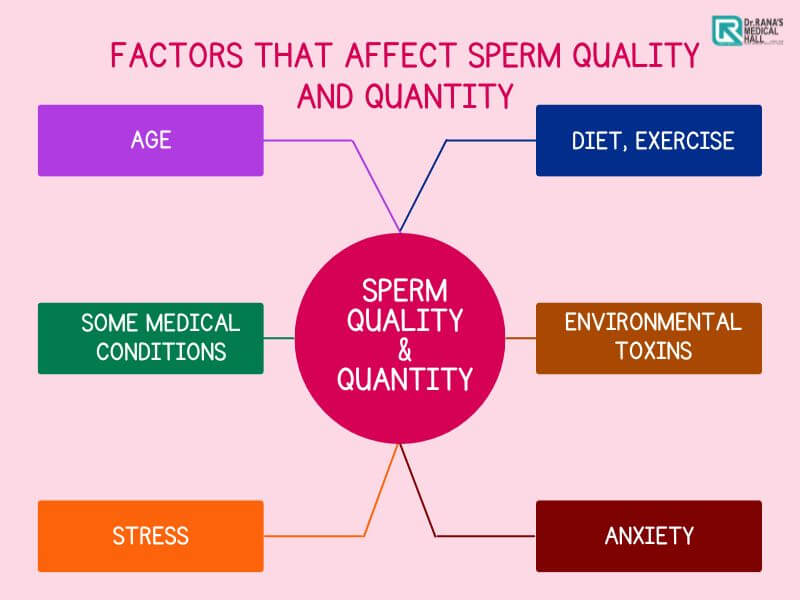
FAQs about Sperm and Male Fertility
All You Need to Know About Sperm and Male Fertility
FAQs about Sperm and Male Fertility: Understand the truth behind the common myths and fiction about sperm and male infertility.
What is sperm and what is its role in reproduction?
The male reproductive cell produced in the testes is what we termed testes. It enables the female egg to fertilize while engaging in sexual cohabitation, which can result in pregnancy.
How is sperm produced and how long does it take to mature?
Spermatogenesis is the process that produces sperms occurring in the testes. A span of 64-72 days is needed for the sperm to mature and get ready for ejaculation.
What factors can affect sperm quality and quantity?
A variety of factors have a severe impact on sperm quality and quantity. They are age, diet, exercise, environmental toxins, stress, anxiety, some medical conditions, etc.
How does age affect male fertility and sperm quality?
Male fertility usually declines with the advancing of age. This in turn causes a reduced ability to fertilize an egg.
What are the common causes of male infertility and what are the available treatment options?
Hormone imbalances, low sperm count, genetic factors, abnormal sperm motility, etc. are the strong causes of male infertility. The treatment options usually initiated are lifestyle changes, medication, surgery, and hormone-assisted reproductive technologies such as in vitro fertilization.
Can lifestyle factors, such as diet and exercise, impact sperm quality?
Maintaining a healthy lifestyle including a balanced diet and regular exercise can have a positive impact on sperm quality and quantity.
What are some natural ways to improve sperm health?
The most natural and nonclinical ways to improve sperm health are maintaining a healthy body mass index, eating a balanced diet, regular workouts, avoiding smoking and excessive alcohol consumption, stress reduction, and getting enough sleep.
Can stress and anxiety affect sperm count and quality?
Yes very much. A negative impact can result in sperm count from high levels of stress and anxiety.
What are the common misconceptions about sperm and male fertility?
The general misconceptions regarding sperm and male infertility are that males are always fertile, fertility is reduced by frequent ejaculation, tight undergarments reduce fertility, etc.
How do environmental factors, such as exposure to toxins or radiation, affect sperm health?
Sperm DNA is affected by environmental factors such as exposure to toxins and radiation, which eventually lead to poor sperm quality and fertility problems.
What is sperm banking and who can benefit from it?
Sperm banking is an innovative idea for storing sperm for future use. It benefits males who are undergoing medical treatments that can affect their fertility or who are planning to have a vasectomy.
Can sperm be used for medical research and what are the ethical considerations?
Any type of medical research can be attempted on sperm, but one should ensure that the research is performed in the utmost responsible and respectful manner.
How do cultural and social factors impact the perception of male fertility and sperm health?
Beliefs regarding masculinity, fertility, and the role of men in reproduction that can be considered cultural and social factors can impact male infertility and sperm health perceptions.
If you have any doubts about the quality, quantity, or more FAQs about Sperm and Male Fertility, feel free to consult our Sexologist.

